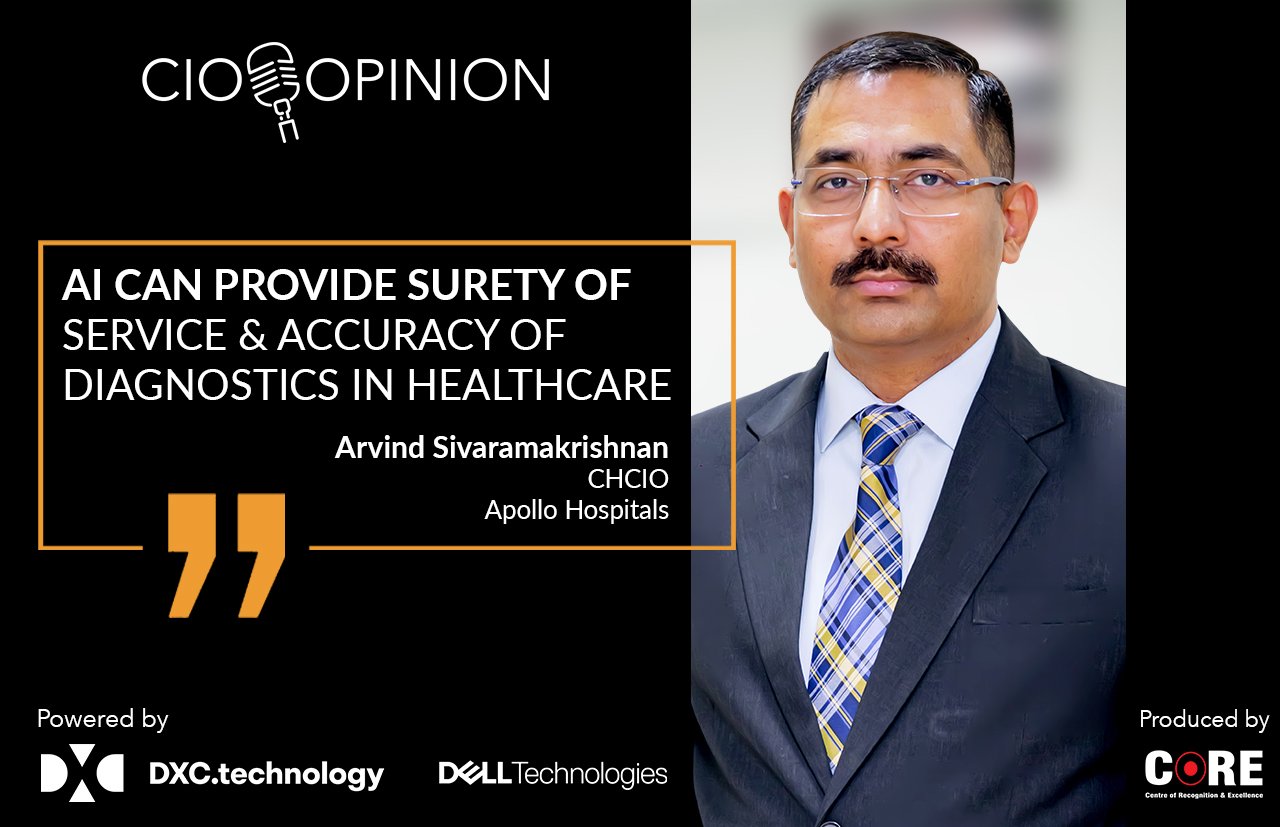Arvind Sivaramakrishnan, CHCIO, Apollo Hospitals shares his insights on how a booster dose of AI can revolutionize the healthcare sector
Reducing the scope of human or medical error is a top-of-the-mind concern in the healthcare industry. We deal with the most precious element in the world - human life, where mistakes or errors are not even an option. Medical errors are akin to risking lives due to negligence. So the health industry should leverage the collective might of processes, technology, and people assisted systems to drive a higher degree of accuracy required in the healthcare delivery mechanism.
The second key aspect is taking the art of medicine and translating it into a repeatable science of medicine - which is extremely important. The necessity of speed to diagnosis is a very critical aspect of healthcare services. Only when a diagnosis is done at a fast speed we can get into a treatment plan. A treatment plan is modeled on a tremendous amount of past medical history. This historical clinical data can be used as an intelligent aid by the care provider.
There are several protocols, pathways, and evidence-based practices which when modeled with data and the variability of data across several cross-sections of population and demographics, and shared with the care provider at the point of care, become exceptionally beneficial in the treatment plan. That, in reality, is the crux of AI and ML in the healthcare industry.
The other aspect of AI in healthcare is analyzing the population demographics. It can facilitate the process of finding several patterns and the intelligence based on the pattern analysis can help us take pre-emptive steps towards being a little forthcoming about a medical problem or a situation.
AI helps manage the data governing information or pattern identification to speed up decision making. That is the context of a logical cohort. You need to apply the right cohort on the right patterns. That, I would say, is the real power of AI and ML in the healthcare sector.
The other aspect of healthcare is that it is a 24X7X365 service that means you have to perform at your best and the highest levels of efficiency and effectiveness at every point in time. And there is no question/scope of having a talent variability.
In the healthcare industry, there is data at every point of service. Over time it will give your surety of algorithm. AI can be applied to the automation of evidence-based protocols to constantly improve decision making at every point of care. Every point in the care process can be made more intelligent, forthcoming, and accurate with data. Consequently, the point of service will be much more efficient and effective. This will lead to good outcomes in healthcare.
While, the healthcare industry has a roadmap for the adoption of intelligent AI-driven automation, we currently are all at a very nascent stage.
The algorithm has to be trained, it has to go through an introspective study, then it has to go through a prospective study. Then it has to go through a simultaneous way of going through a parallel study enabled by AI. During this period you will have to encounter several errors and false positives. These have to be trained and the boundary conditions calibrated. All of this is a time-consuming process. It’s not like writing software. For ensuring the success of AI in healthcare, data scientists and healthcare experts should collaborate and conceive these algorithms over some time.
Technology providers in the area of AI should be hands-on with the healthcare work process. Technology has to cater to the work process and not the other way round. Their solutions should be rooted in reality. You can’t make healthcare algorithms in isolation. You have to factor in the ground realities, industry challenges, budgetary constraints, economics, and the other country-specific challenges.
The ability to be interoperable and to provide service beyond the initial sale is also critical. Sustainability of solution is equally important when it comes to AI.
And finally, they should keep AI solutions affordable for the industry. Ultimately, AI should lower the cost of healthcare.
To know more.


